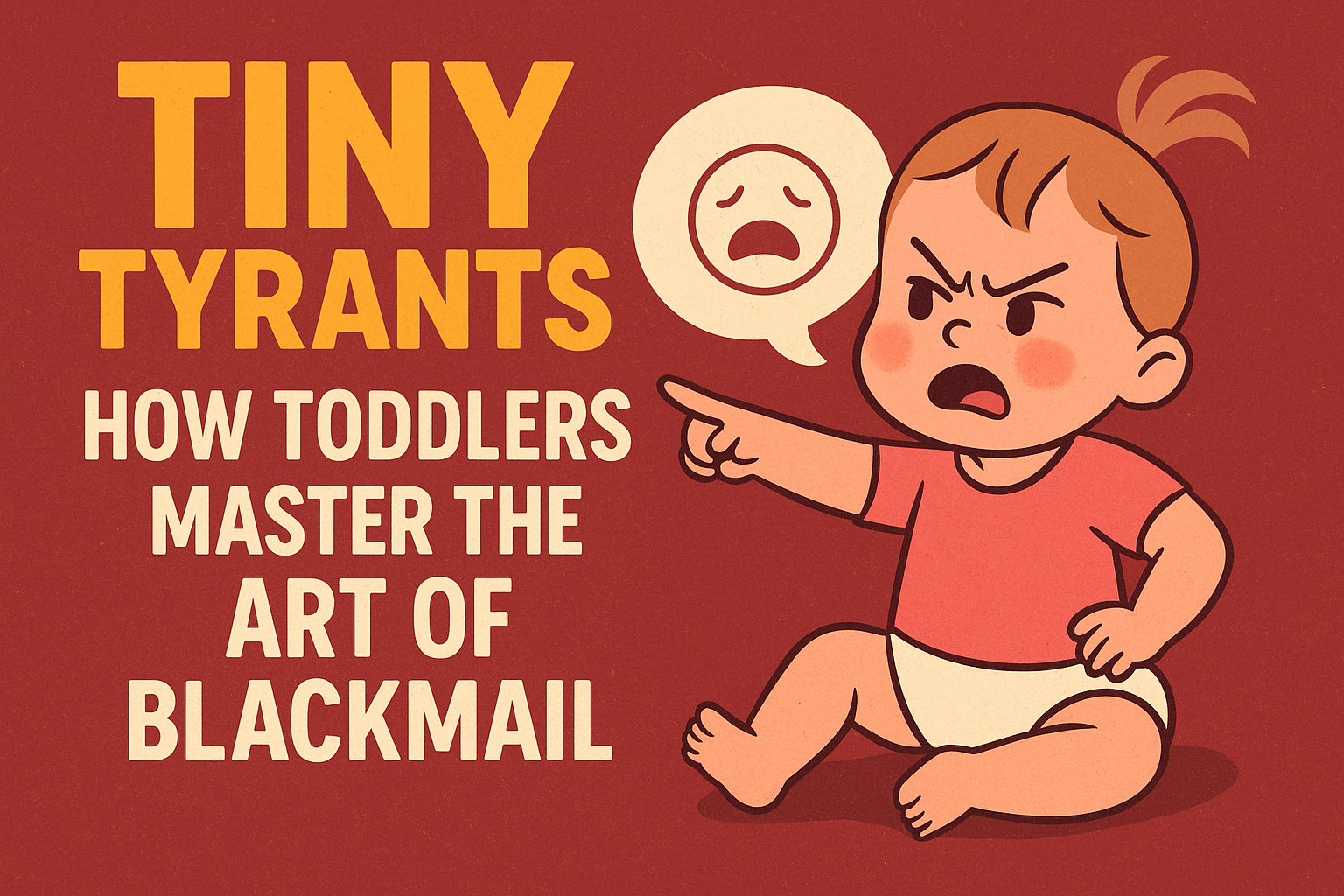Sometimes, I catch myself wondering if blackmail, or should I say gaslighting, is woven into our DNA or something carefully nurtured by the environments we grow in. History is littered with stories of manipulation, leverage, and subtle coercion. The Epstein saga, for instance, has long been whispered about as a conspiracy of entrapment. Powerful individuals are allegedly held in check by their own secrets. Whether true or exaggerated, it raises an unsettling thought. Maybe the game of blackmail doesn’t start in boardrooms or secret islands. Maybe it starts in the nursery.
My 20-month-old daughter is currently teaching me a masterclass in this very art. I say “teaching” because I’m the student here, fumbling through the curriculum of toddlerhood, while she, tiny as she is, is already running the class with distinction. She has figured out, like all kids eventually do, that her cries are not just sounds. They are levers. Buttons she can press to get my attention, to pull me away from the keyboard, or to redirect my energy toward her world of toys and giggles.
It started with a simple cry. Nothing dramatic, just the usual toddler wail. I responded like clockwork, and she learned quickly. But soon, she noticed that the cry’s impact began to fade. Maybe Daddy was becoming immune, or maybe I was too absorbed in my writing. So, like any skilled negotiator, she adjusted her tactics. Now, the cry comes with a look; a piercing, calculated glance that melts all resolve. It’s as if she’s saying:
Oh, you thought you could resist me? Watch this.
And just like that, I’m up, abandoning my thoughts mid-sentence, surrendering to her demands.

If this sounds familiar, it’s because kids everywhere are pulling the same trick. They don’t call it blackmail, of course. To them, it’s survival, communication, a way to bridge the gap between what they want and what they can’t yet say. But to us parents, it feels suspiciously close to emotional extortion. The tiny tyrants don’t threaten us with secrets. They really don’t need to. They just wield their natural innocence like a weapon sharper than any kompromat file.
And maybe, just maybe, this is the foundation of all blackmail. The toddler cry grows into the teenage sulk, which grows into the adult manipulation we recognize in workplaces, politics, and, yes, even global scandals. Epstein’s alleged empire of leverage might seem galaxies away from a child demanding candy, but the mechanics are eerily similar. Find the weakness, press the button, secure the desired outcome. The stakes may differ, but the psychology is identical.
The funny thing is, while part of me is frustrated by these tactics, another part is quietly impressed. Watching my daughter evolve her strategy feels like witnessing a human survival instinct in its rawest form. She doesn’t have money, influence, or power. All she has is her ability to manipulate emotion, and she does it flawlessly. In a way, it’s proof that leverage isn’t something we learn from society’s darker corners. It’s something we’re born with, sharpened by trial and error from the crib onward.
Of course, unlike the Epstein stories, my daughter’s brand of blackmail is harmless. It doesn’t ruin careers or topple governments. At worst, it delays a blog post or forces me into an impromptu tea party. But it does make me pause and laugh at the irony. Here I am, reflecting on the world’s conspiracies and manipulations, while being outplayed daily by a toddler who can’t even pronounce the word 'blackmail'.
It just occurred to me that power isn’t always about size, status, or wealth. Sometimes, it’s about knowing which button to press and pressing it with perfect timing. And in that sense, toddlers may just be the most skillful blackmailers of us all.
Posted Using INLEO